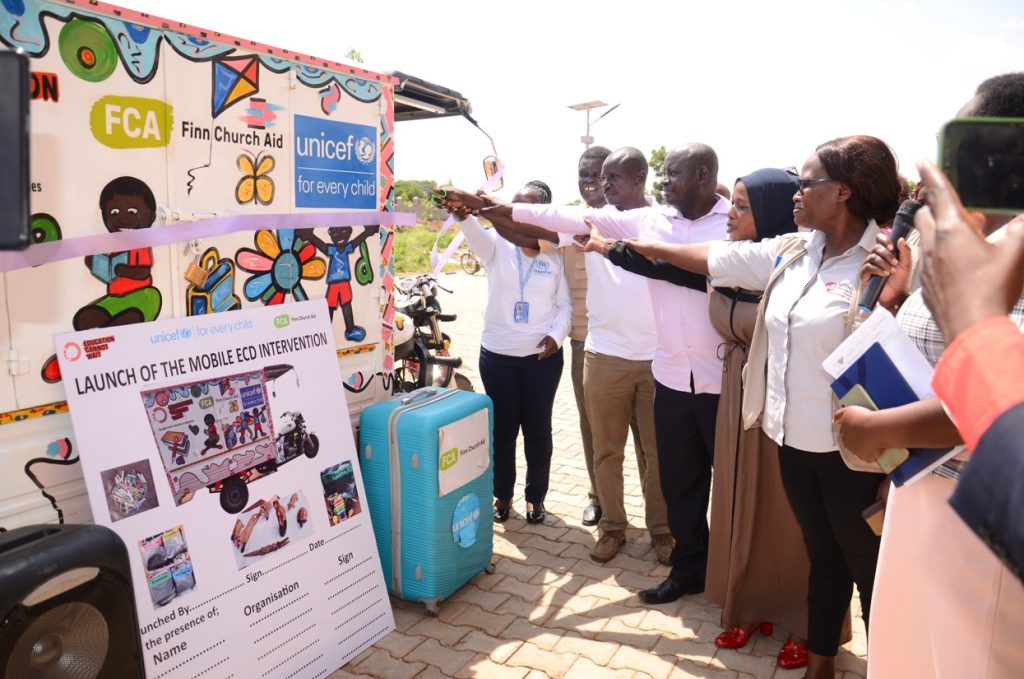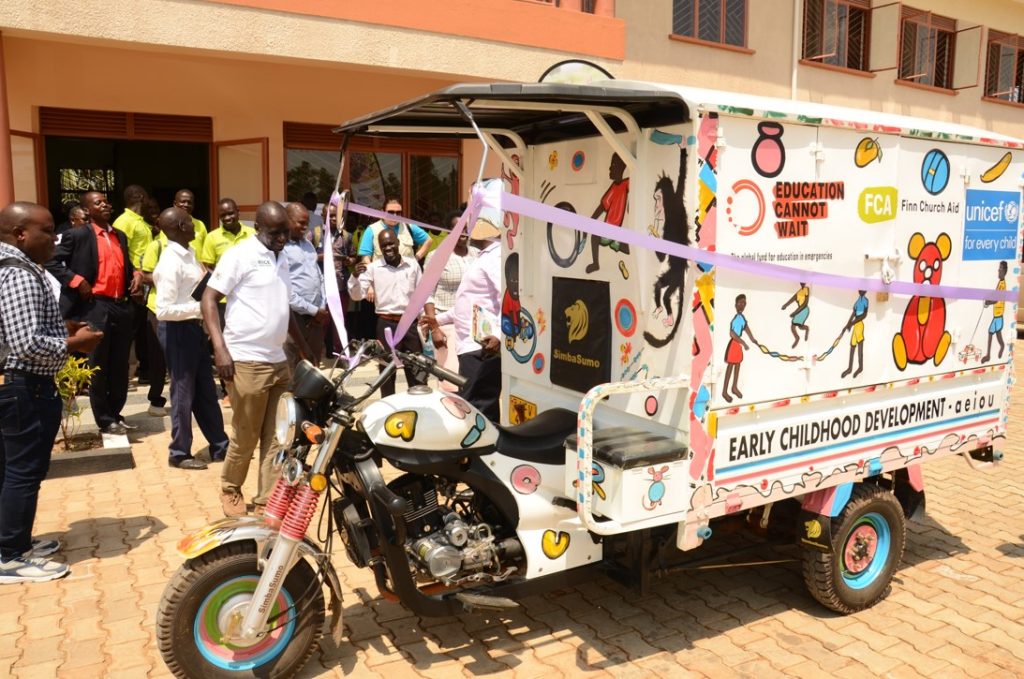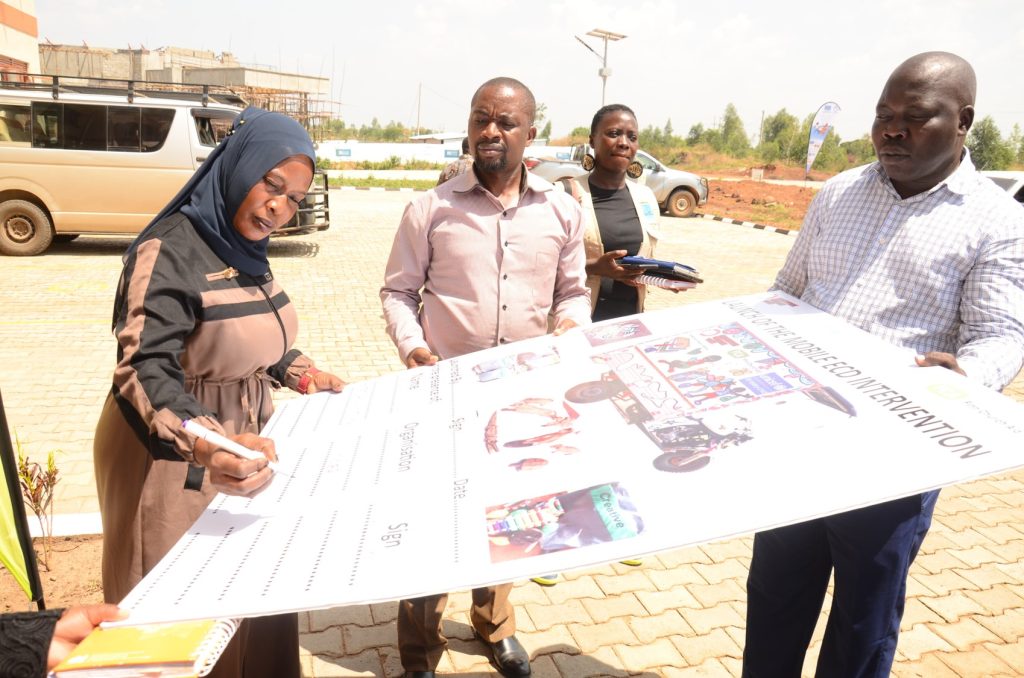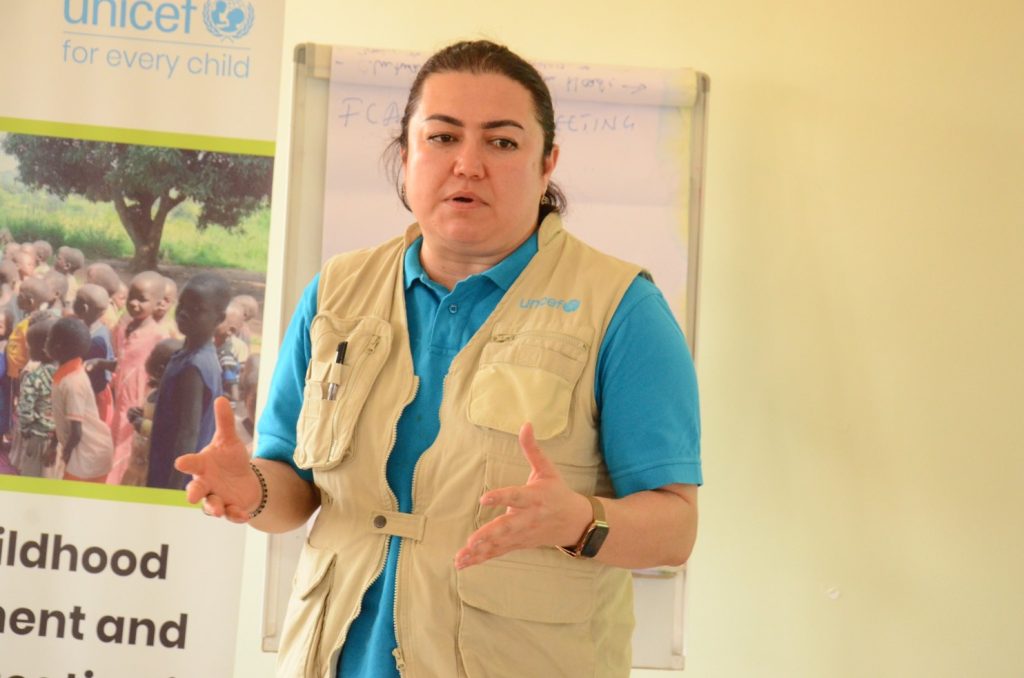Bringing play-based learning to the most remote communities in Uganda

FCA and UNICEF are reaching remote communities in Terego district with mobile learning units, including play-based learning experiences for the youngest children.
Early childhood is a phase of intense development and learning. When children have the chance to access age-appropriate education, usually through play and in the years from 0-6, the benefits to the child are huge.
In remote areas, early learning centres are rare
In the remote areas of Terego district, West Nile, Uganda, access to mainstream education is already challenging. Facilities for younger children are almost non-existent.
That’s why FCA and UNICEF have launched a new initiative, aimed at accelerating learning among children in hard-to-reach regions, specifically the sub-counties of Uriama and Omugo.
Using the simple means of a three-wheeled motorcycle, or trike, equipped with an early childhood development (ECD) kit, educators can travel through Terego district and reach kids directly.
The play-based learning kit enables professionals to deliver engaging and interactive learning experiences safely within communities, taking away the need for families to travel.

A joint initiative
The project was developed by UNICEF Uganda and Finn Church Aid jointly through funding from Education Cannot Wait, with FCA staff delivering the sessions. It is a vital component of the ‘Early Childhood Development and Quality Education’ initiative that FCA implements in the districts of Adjumani, Terego, Koboko, and Yumbe in the West Nile region, as well as Kyegegwa, Kamwenge, and Isingiro in Western Uganda.
“The intervention is intended to support early childhood learning opportunities for hard-to-reach communities. The intervention supports four pillar models: teacher/ECD caregivers, parents, management, and young children, in the delivery of Early Childhood Education services across the country,” says FCA Uganda Head of Programs, Stephen Ssenkima.
Innovative approach
“At the heart of this innovation lies a comprehensive strategy that leverages cognitive, emotional, creative, and physical materials to deliver impactful learning experiences to children,” explains Charles Oriokot Aporu, the ECD Coordinator at Finn Church Aid. “Sixteen community learning centres have been established as focal points for children, facilitated by volunteers selected from local communities.”
The learning centres are staffed with volunteers, selected by leaders in the community. FCA staff provide training on how to facilitate the sessions using play learning materials and regularly check up on the sessions to provide continuing support.

First five years of life is crucial
Speaking during the launch, Hajjat Safina Mutumba, the Principal Education Officer overseeing pre-primary education at the Ministry of Education and Sports, underscored the relevance of mobile ECD centres, emphasising their alignment with the policies of home-based and community-based nursery schools.
She highlighted the advantage of the mobile ECD innovation, noting its ability to reach learners in their own environments, particularly considering the high vulnerability levels prevalent in the benefiting communities.
“These children are extremely vulnerable, residing in communities where ECD services are lacking. We recognise that brain development is most rapid during the first five years of life. Without adequate support during this critical period, we risk losing them. Through this innovation, we will ensure that these children are reached where they are, providing them with the crucial opportunity for early learning,” Hajjat Safina said.”

UNICEF’s Chief of Basic Education and Adolescent Development (BEAD) section, Barno Mukhamadieva, underscored their commitment to advancing the educational journey in regions where illiteracy levels remain alarmingly high. “West Nile holds priority status for our organisation due to the substantial number of refugees it hosts, along with the associated educational challenges.”
Leveling the playing field
Wilfred Saka, the district chairperson for Terego, hailed the innovation, noting its potential to motivate rural children, who lack access to modern learning tools. Saka remarked, “our children often feel inferior, which contributes to the performance gap in our schools. Urban children benefit from exposure to such resources, but this intervention levels the playing field. It ensures our learners can compete with their urban counterparts, and we are committed to sustaining its impact in the district.”
Agnes Onzia, a volunteer caregiver at Kilima Church ECD, shared stories of children blossoming into eager learners. “Some of the children joined with difficult behaviour and they have really changed. Many from last year have joined the primary section now,” recounts Agnes Onzia
So far, nine parishes spanning the two sub-counties and Uriama have been selected to pilot the mobile ECD programme. Over 1,188 children, previously excluded from formal education, have been enrolled, signalling a substantial enhancement in their access to learning opportunities.
Find out more about our work in Uganda